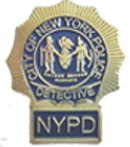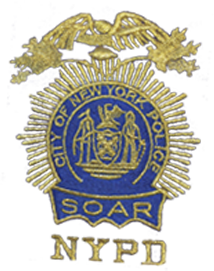




U.S. Congressman Pushing Change To Block States From Banning Cops Carrying Guns
U.S. Congressman Pushing Change To Block States From Banning Cops Carrying Guns
By Sandy Malone
December 23, 2018
Blue Lives Matter
U.S. Rep. Don Bacon plans to introduce important LEOSA amendments in the next Congress.
Washington, DC – A congressman from Nebraska is ready to introduce new amendments to the Law Enforcement Officer Safety Act (LEOSA) that will shut down lasting attempts by some states to limit the coverage of that law within their own borders.
U.S. Representative Don Bacon (R-Nebraska) introduced a few amendments to LEOSA that died with the end of the 115th Congress, but he’s already prepared with a bigger, better version.
“We have been made aware of various LEOSA abuses by states regarding implementation of this federal law and I will be introducing legislation in the 116th Congress to make improvements to LEOSA as identified by a coalition of law enforcement organizations,” Bacon told Blue Lives Matter.
Bacon’s proposed amendments will come as no surprise to many, particularly on the East Coast where states like New Jersey and New York have over-complicated routine travel for those specifically covered by LEOSA.
"Upon introduction, our changes to the LEOSA Reform Act in the 116th Congress will allow our law enforcement officers who have dedicated their lives to protect our communities, to continue doing so by extending their concealed carry privileges," the congressman said. "Allowing trained professionals with years of expertise to carry could allow them to respond more quickly to emergencies, and makes our communities safer."
"I know if I was in a crisis situation, I’d be relieved to have a retired officer near me who is trained and ready react safely," he said.
Bacon and his coalition seek to make the following changes:
Federal Gun Free School Zones Act (GFSZA) - The GFSZA currently does not permit carry for those pursuant to LEOSA even though possessing a state CCW permit does. Thus, having a state CCW means you can carry in school zones but carrying under LEOSA does not. We wish to revise the GFSZA to include an exemption for LEOSA.
State, Local, and Property Open to the Public, including Common Carriers - LEOSA currently does not override the prohibition of CCW carry on common carriers (e.g. city buses, subways, AMTRAK, etc.), nor does it override the ability of private property owners of otherwise publicly accessible property (e.g. shopping malls, stores, movie theaters, etc.) from prohibiting carry. We wish to revise LEOSA to allow qualified law enforcement officers (QLEOs) and qualified retired law enforcement officers (QRLEOs) to carry on common carriers and on state, local, and privately-owned property that is otherwise open to the public. (Courthouses and Law Enforcement facilities would continue to be restricted, as would carry for commercial airlines.)
National Parks - LEOSA currently does not permit carry in National Parks but having a state CCW permit does. We wish to revise LEOSA to specifically allow carry on all federally owned lands/properties that are otherwise open to the public.
Magazine size limitation - LEOSA currently provides an exemption from state/local restrictions on ammunition, but it does not provide an exemption from such restrictions on magazine size. Thus, one can carry hollow-point ammo under LEOSA even if it is prohibited by state/local laws, but LEOSA does not allow an exemption on magazine size limitations. We wish to revise LEOSA to also provide the magazine size exemption.
Qualification Issue - LEOSA certification currently requires annual qualification to the state standard for law enforcement or on the qualification standard of their former employing agency. This is a problem for those who reside in states for which there is no state standard for law enforcement, those states that have different standards for active versus retired law enforcement, and those states that prohibit their certified firearms instructors from qualifying retired officers. We seek to revise LEOSA to provide multiple options for meeting the annual qualification requirement and at the option of the state, extend the training requirement from every 12 months—to up to every 36 months.
Certain Federal Facilities – LEOSA currently does not allow carry in Federal civilian public access facilities. We wish to revise LEOSA to allow carry in a Facility Security Level I or II civilian public access facility (e.g. US Post Offices and Social Security offices, etc.) (Federal Courthouses would continue to be restricted).”
Bacon’s proposed amendments are broader than those that died with his last bill.
The new amendments address some specific issues that have come up in states that have sought to violate the spirit of LEOSA by restricting retired and active-duty officers carrying at will.
“Our coalition’s members, who are often retired law enforcement living in various states around the nation, are the individuals impacted by this law and notify us when they encounter problems with it,” Bacon explained.
The coalition backing Bacon’s proposed amendments is made up of the Society of Former Special Agents of the FBI (SFSAFBI/SFSAF), the Federal Law Enforcement Officer Association (FLEOA), the Association of Former Agents of the U.S. Secret Service (AFAUSSS), the FBI Agents Association (FBIAA), the National Organization of Police Organizations (NAPO), the National Organization of Black Law Enforcement Executives (NOBLE), the Fraternal Order of Police (FOP), and the NYPD Sergeants Benevolent Association (SBA).
The changes to LEOSA that Bacon and his coalition are proposing mostly serve as clarifications in what has become a never-ending effort to codify what the framers of the original bill had in mind when it was crafted.
The original LEOSA legislation passed in 2004 allowed "qualified law enforcement officers" and the "qualified retired or separated law enforcement officers" to carry a concealed firearm in any jurisdiction in the United States, regardless of state or local laws, with certain exceptions.
The initial law unintentionally left open for interpretation exactly which officers individual states deemed to be “qualified” under LEOSA, and what kind of ammunition they could carry.
So in 2010, amendments were passed that extended and defined the coverage and requirements, paving the way for a larger group of active-duty and retired officers to carry under LEOSA.
They also expanded the definition of a permitted firearm to include any ammunition not prohibited by the National Firearms Act of 1934, thus shutting down New Jersey’s attempt to limit the carrying of hollow-point bullets.
Congress further expanded LEOSA with amendments in 2013 that extended its coverage to active-duty and retired military police.
The bill Bacon intends to introduce in the new Congress addresses specific state issues, or conflicts in the law, that have arisen.
Most recently, a New Jersey law went into effect that limits the size of magazines to 10 rounds or fewer, and the state indicated it also applied to those carrying under LEOSA.
Bacon’s amendment would solve the issue by exempting LEOSA carriers from magazine-size restrictions.
https://defensemaven.io/bluelivesmatter/news/u-s-congressman-pushing-change-to-block-states-from-banning-cops-carrying-guns-nhYAaJ0CAk2HdG1CLvevZw/
Bacon Introduces Updated Legislation to Improve Concealed Carry Legislation for Current and Retired Law Enforcement
June 15, 2018
Press Release
WASHINGTON, D.C.- Yesterday afternoon, Congressman Don Bacon (NE-02) introduced H.R. 6105, the Law Enforcement Officers Safety Act (LEOSA) Reform Act with Reps. Scott Perry (PA-04) and John Rutherford (FL-04) as original cosponsors. The LEOSA Reform Act makes improvements to current concealed carry laws by easing training burdens and restrictions on carrying for current or retired law enforcement officers.
These professionals are in every community and have completed extensive and required training to properly handle a firearm. This spring, Rep. Bacon introduced H.R. 4896, the LEOSA Training Extension Act. However, after hearing from local, state, and national law enforcement officers Rep. Bacon decided to make changes and reintroduce the legislation.
The LEOSA Reform Act aims to make improvements to the Law Enforcement Officers Safety Act by expanding where retired law enforcement can carry a concealed firearm, reforming qualification standards for retired officers to alleviate undue burdens for those carrying pursuant to LEOSA, and allowing carry on private and state property otherwise open to the public.
“The new and improved LEOSA Reform Act will allow our law enforcement officers who have given their lives to protect our communities, to continue doing so by extending their concealed carry privileges,” said Rep. Bacon. “With all of the recent tragic school shootings, allowing trained professionals to carry could allow them to respond more quickly to emergencies and provide years of expertise to these situations.”
“As someone who spent more than 40 years as a law enforcement officer, I understand in a special way the lifelong commitment retired officers feel toward protecting their community,” said Rep. Rutherford. “This important bill will expand upon the highly successful Law Enforcement Officers Safety Act of 2004, to allow retired law enforcement who meet stringent training standards to maintain an enhanced concealed carry license across state lines. Our retired law enforcement officers have the training and skills needed to help protect the public, and they should be empowered to do so no matter where they travel. I want to commend Congressman Bacon for his hard work on this bill and for his commitment to our retired law enforcement community.”
“The LEOSA Reform Act is a common sense adjustment that fortifies our Second Amendment protections and is a step toward restoring Constitutional Carry to law-abiding American citizens nationwide,” said Rep. Perry. “This legislation is one piece in a tapestry I’ve supported to restore our Second Amendment protections.”
Upon introduction, the Federal Law Enforcement Officer Association (FLEOA), the Association of Former Agents of the U.S. Secret Service (AFAUSSS), the FBI Agents Association (FBIAA), and the Society of Former Special Agents of the FBI (SFSAF) announced their support.
"The primary duty of any law enforcement officer is to protect life. That duty doesn't end when you are off duty or retired,” said Nathan Catura, National President of Federal Law Enforcement Officers Association (FLEOA). “The Law Enforcement Officers Safety Act (LEOSA) as originally conceived was to ensure any and all law enforcement officers could perform that sacred duty. Unfortunately, over time, vagaries in the law have impacted its effectiveness and we need to ensure all law enforcement officers are prepared to respond if duty calls. We appreciate Rep. Bacon's leadership with introducing this much needed LEOSA Reform Act and look forward to working with our vast coalition of law enforcement organizations who agree that LEOSA is important to their members and the American people."
"Our organization enthusiastically endorses the LEOSA Reform Act and we thank Congressman Bacon for introducing it with Congressman Perry and Rutherford as co-sponsors. We have approximately 8,500 members and 120 active Chapters throughout the United States,” said Ed Burke, National President of the Society of Former Special Agents of the Federal Bureau of Investigation. “Our members are keenly interested in continuing to help keep America safe and we believe this legislation will assist greatly in that endeavor. The enactment of this proposed legislation will better allow our members and other law enforcement officers to provide additional safety for the communities where the officers and retired officers live and visit.”
###
https://bacon.house.gov/media/press-releases/bacon-introduces-updated-legislation-improve-concealed-carry-legislation
